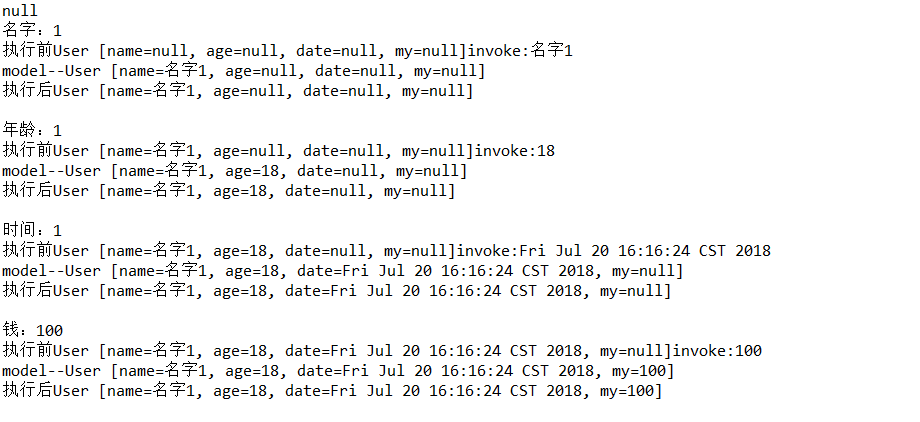

Returns the array of Fields that reflect to the public attributes of the class. Returns the Field that reflects to the public attribute of the class with the given name.
#JAVA REFLECTION METHOD HOW TO#
We have a few “important to remember” things in relation to how to find out the members of a class, I’ll present the methods first, and then elaborate more on these details. Inside the Class class we have a few different methods that can return us the class’ fields, as a spoiler I already say that there are equivalent methods for methods and constructors, but let’s focus on the attributes first. It is through this class that we can obtain information about them, but before that, how do we get a reference to a Field? The fields represent the attributes of a class, it’s that simple. Tip: To use successfully the methods in the Modifier class, it is necessary to have some basic knowledge on bitwise operations.Being the most common in this case, the AND operation. You can see a complete definition of these methods and many others directly in the class documentation. Returns the reference of the superclass, in case it is invoked in the Object class, it returns null Returns true if the informed object can be assigned to an object of the type represented by this Classĭetermines if the class represents an interfaceĭetermines if the class represents a primitive type Returns the modifiers of the class or interface inside an int, to find out exactly what modifiers are applied, we should use the static methods provieded by the Modifier classĭetermines if the class represents an Arrayĭetermines if the class was declared as an enum in the sourcecode Normally name the identifiers of an instance of Class something like clazz or clz, it may seem weird, but that’s only because class is already a reserved word in the Java language.įrom the class’ reference we can navigate through everything, find out what are it’s members, annotations, even it’s package or it’s ClassLoader, but we’re gonna get into all of that in more detail later, so for now let’s focus on the methods that give us information regarding class itself: int getModifiers() Directly from the class, from it’s name, or from an instance: Class clazz1 = M圜lass.class Ĭlass clazz2 = Class.forName("圜lass") We can obtain the Class‘s reference in 3 different ways. Let’s assume we have the following class: package com.pkg One of the most important things when working with Reflection is knowing where to start, knowing what class gives us access to all that information. So… Shall we? The starting point, the Class class What can be done, what shouldn’t be done, advantages and drawbacks. In this tutorial I intent to show some basic usage of the Reflection API. The dynamism obtained by this sounds really useful, doesn’t it? The advantage it brings to the table is the ability to analyse information regarding a class, as it’s attributes, methods, annotations, or even the state of an instance, all of that in runtime. This feature is really powerful, but as always, has to be used with some good judgement. Then you have probably already heared of Java’s Reflection API, and in case you haven’t, this is a good opportunity to see what it’s all about, and what it can be used for. – “How do I write a method that resets the state of any given object to default values?” – “How do I list all the attributes in a class dynamically?” – “How do I invoke a method, having only it’s name in a String?”
#JAVA REFLECTION METHOD CODE#
Find the code snippet.If you have ever asked yourself questions like these: Parameters are annotated with the value as parameter name. Scenario 2- Before Java 8 without using Parameter class.įrameworks like spring uses annotation to get parameter name. If -parameters compiler argument has not been used, getName() method will return parameter name as arg0, arg1 etc. If we have not used -parameters compiler argument, it will return false otherwise true. class contains original parameter names as in source code or not. Use Parameter class to access method and constructor parameters using its methods such as isNamePresent() and getName(). Compile source code using javac -parameter.ī. Using Java 8 Reflection API, we need to follow two steps.Ī. Access Constructor Parameters using Java 8 Reflection.Access Method Parameters using Java 8 Reflection.Maven using "-parameters" Compiler Argument.Gradle using "-parameters" Compiler Argument.Set "-parameters" Compiler Argument in Eclipse.


 0 kommentar(er)
0 kommentar(er)
